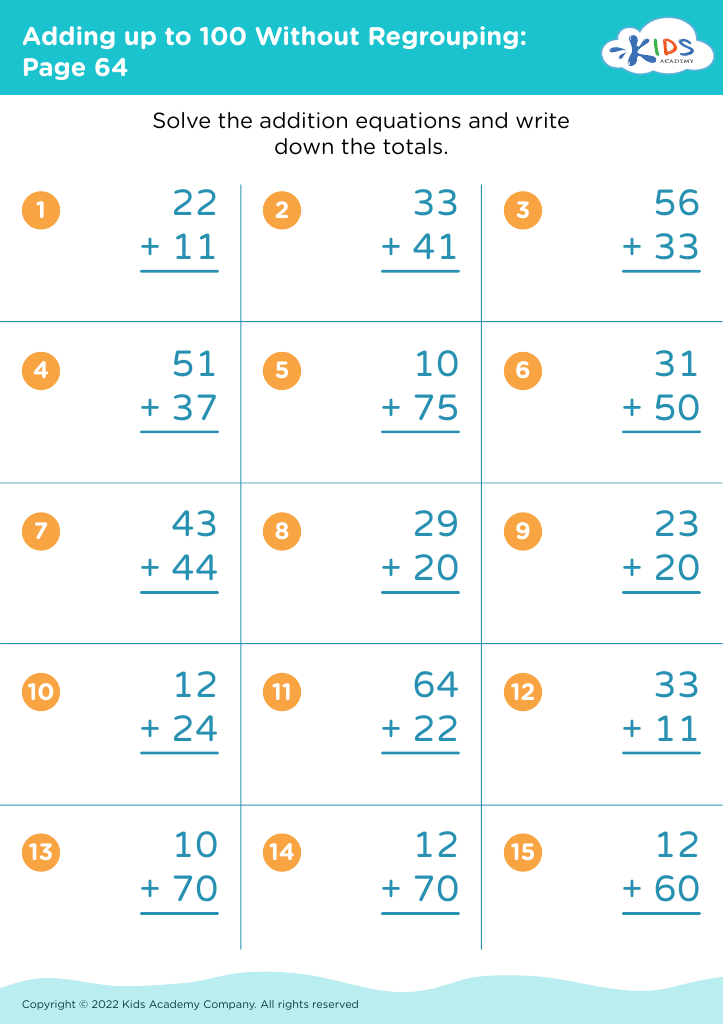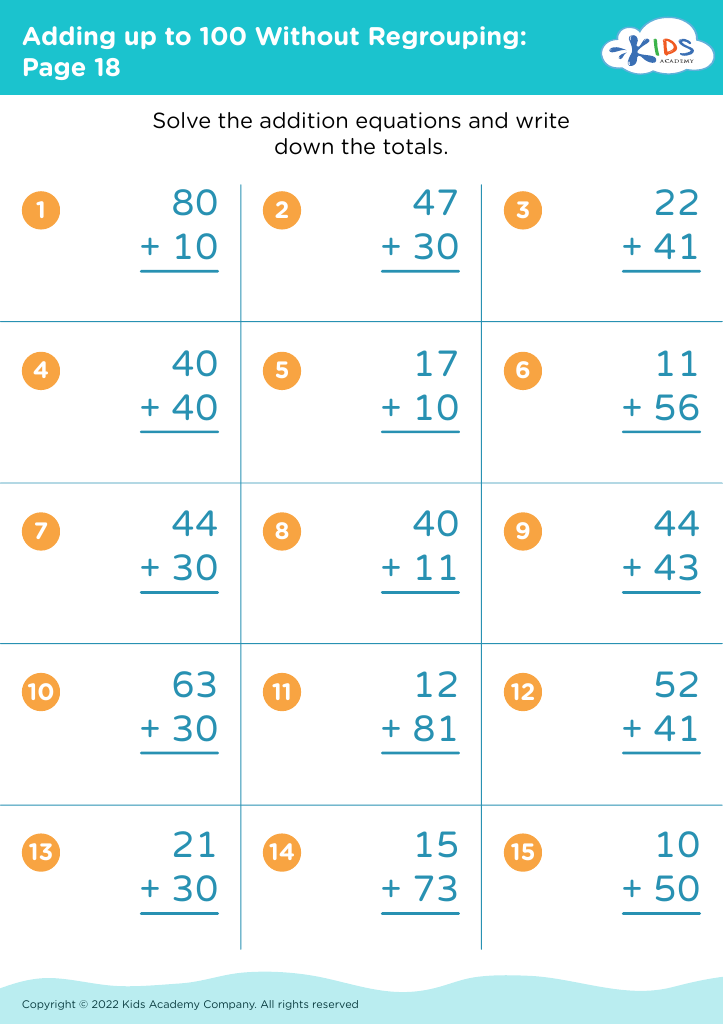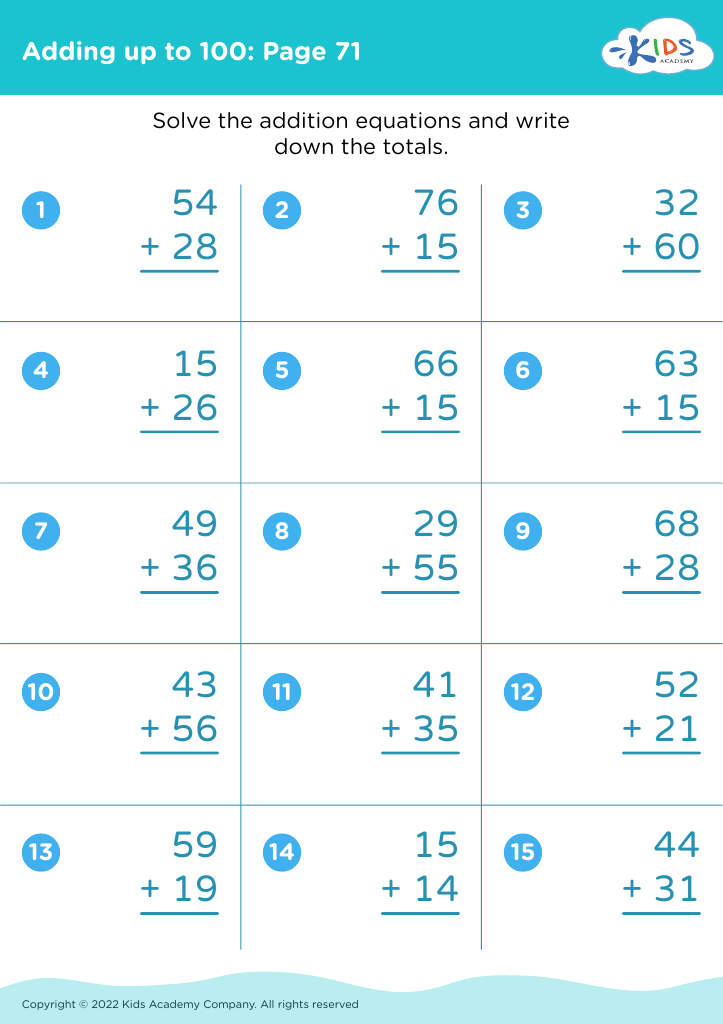Problem-solving practice Adding up to 100 Worksheets for Ages 7-8
5 filtered results
-
From - To
Enhance your child's math skills with our "Problem-solving Practice: Adding Up to 100 Worksheets" designed for ages 7-8. These engaging worksheets provide fun and interactive ways for young learners to tackle addition problems, building a strong foundation in math. Each worksheet is crafted to challenge students' critical thinking and problem-solving abilities, promoting confidence as they explore various addition scenarios. Ideal for independent study or classroom reinforcement, our resources ensure that your child not only practices math skills but also enjoys the learning process. Download now and watch your young mathematician thrive while mastering addition up to 100!
Parents and teachers should prioritize problem-solving practice that focuses on adding up to 100 for children aged 7-8 for several compelling reasons. At this developmental stage, children are not only refining their arithmetic abilities but also building essential critical thinking and reasoning skills.
Firstly, mastering addition within the framework of 100 lays a solid foundation for more complex mathematical concepts. As students practice combinations that sum to 100, they enhance their mental math strategies, fostering confidence in their abilities to tackle higher-level math later on.
Moreover, engaging in problem-solving activities promotes perseverance and resilience. As children encounter challenges in reaching 100 through various combinations, they learn the value of trial and error, crucial skills that extend beyond math and into everyday problem-solving scenarios.
In addition, this type of math practice can be made interactive and fun through games and challenges, making learning enjoyable. Such engagement encourages healthy learning habits and attitudes toward mathematics.
Finally, by closely collaborating with teachers and staying informed about their children’s progress in math, parents can provide reinforcement at home, ensuring a cohesive approach to learning that supports academic success and emotional well-being. These factors collectively emphasize the importance of problem-solving practices in early education.









%20(1).jpg)









